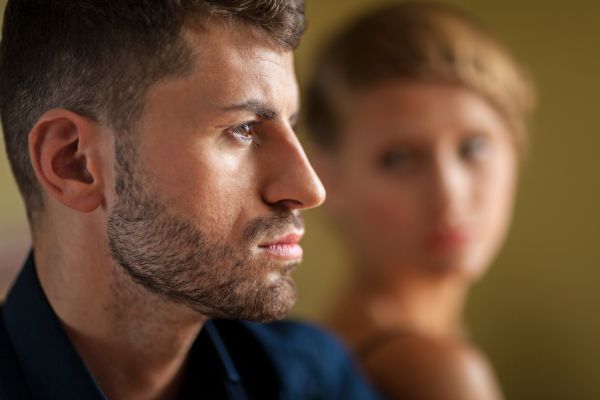Product liability is a term that can strike fear in the hearts of manufacturers, but it’s also a powerful protection for consumers. If a product you purchased caused you harm due to a defect or failure, a product liability lawyer can help you seek justice and compensation. But how do these legal experts work, and when should you reach out to one? In this article, we’ll explore the role of product liability lawyers, how they can assist you, and answer some frequently asked questions to help you better understand the legal landscape.
What Does a Product Liability Lawyer Do?
Product liability lawyers specialize in cases where consumers have been injured by defective or unsafe products. They hold manufacturers, distributors, suppliers, and retailers accountable for selling products that cause harm. The cases they handle range from defective automobiles to faulty medical devices, or even dangerous household products. Here’s a breakdown of their primary functions:
- Assess Claims: Product liability lawyers will first determine whether you have a viable case. They’ll review the product in question, the injury sustained, and whether the product was indeed defective.
- File Lawsuits: Once the case is deemed viable, the lawyer will file a lawsuit on your behalf. This typically involves gathering evidence, expert testimonies, and any records that link the defect to your injury.
- Negotiate Settlements: A large percentage of product liability cases settle before going to trial. Product liability lawyers negotiate with the opposing party to ensure you get the compensation you deserve.
- Trial Representation: If a settlement can’t be reached, your lawyer will represent you in court, making arguments and presenting evidence that supports your claim.
Types of Product Defects
There are three main categories of product defects that product liability lawyers typically deal with:
- Design Defects: These occur when the product design itself is inherently unsafe. Even if the product is manufactured perfectly, it still poses a risk to users because of its design flaws.
- Manufacturing Defects: In these cases, a product is safe in its design but becomes dangerous due to a flaw in the manufacturing process, such as using substandard materials or assembling parts incorrectly.
- Marketing Defects: This defect happens when a product lacks proper instructions or safety warnings, leading consumers to misuse the product in a harmful way.
When Should You Hire a Product Liability Lawyer?
If you’ve been injured by a defective product, it’s important to act quickly. But how do you know when it’s time to hire a product liability lawyer? Here are some signs you should look for:
- Serious Injury: If the product defect caused a significant injury or led to long-term health problems, you should consider seeking legal help.
- Medical Expenses: If your injury resulted in mounting medical bills, you might be entitled to compensation. A lawyer can assess whether the product’s manufacturer is responsible.
- Lost Wages: If the injury caused you to miss work or resulted in reduced earning potential, hiring a lawyer to file a product liability claim could help recover your losses.
- Product Recall: If the product that caused your injury has been recalled, that’s a strong indicator that the defect was widespread, making your case more likely to succeed.
How Do Product Liability Lawyers Prove Fault?
Proving a product liability case is no small feat. It involves gathering a range of evidence to demonstrate that the product was defective and that defect caused the injury. Here’s a look at the key steps lawyers take:
- Investigation: The first step involves investigating the product and how it was used. Lawyers will gather reports, examine the product, and consult experts.
- Expert Testimony: In most cases, an expert is called in to testify on how the defect caused the injury. This could be a medical professional, engineer, or industry specialist.
- Documentation: Lawyers will gather all relevant documents, including purchase receipts, warranty details, and product manuals to build a strong case.
- Causation: Proving that the product defect directly caused the injury is crucial. Product liability lawyers excel at connecting the dots between a defect and the harm suffered by the consumer.
Common Types of Product Liability Cases
Product liability cases can come in many forms. Here are some of the most common cases product liability lawyers handle:
- Automotive Defects: Faulty brakes, airbags that don’t deploy, and other automotive issues can cause serious accidents. Lawyers often handle these complex cases to hold car manufacturers accountable.
- Defective Medical Devices: Pacemakers, joint replacements, or other medical devices that malfunction can lead to devastating health consequences.
- Pharmaceutical Issues: Defective drugs or inadequate warnings about side effects can also be grounds for a product liability claim.
- Household Products: From electronics to kitchen appliances, household products that malfunction can result in fires, electric shocks, or other injuries.
- Children’s Toys: Toys that pose choking hazards, lead poisoning, or other risks can be subject to product liability lawsuits.
The Legal Process: What to Expect
Hiring a product liability lawyer involves a series of steps to ensure that your case is handled thoroughly. Here’s what you can expect:
- Initial Consultation: Most lawyers offer a free consultation to discuss your case. This is where you’ll share your experience, injury details, and product information.
- Filing the Lawsuit: Once your lawyer determines your case has merit, they’ll file a formal lawsuit against the product manufacturer or seller.
- Discovery Process: This is where both sides gather evidence, take depositions, and build their cases. It’s a crucial phase that can take some time.
- Settlement Negotiations: Many cases are resolved during this phase. Your lawyer will negotiate on your behalf to get the best possible outcome.
- Trial: If a settlement can’t be reached, the case will go to trial. Your lawyer will represent you, present evidence, and argue your case in front of a judge or jury.
What Compensation Can You Receive?
The compensation in a product liability case can vary greatly depending on the circumstances. However, product liability lawyers typically pursue these types of damages:
- Medical Expenses: Compensation for hospital stays, surgeries, and ongoing treatments related to the injury.
- Lost Wages: If you missed work or lost your job due to the injury, you could be compensated for lost income.
- Pain and Suffering: Injuries often cause emotional distress, pain, and suffering, and compensation can be awarded for this as well.
- Punitive Damages: In some cases, manufacturers can be held liable for punitive damages if it’s proven that they acted recklessly or with willful disregard for consumer safety.
FAQs About Product Liability Lawyers
1. How much does it cost to hire a product liability lawyer?
Many product liability lawyers work on a contingency fee basis, meaning they only get paid if you win your case. The fee typically ranges from 25% to 40% of the settlement or judgment.
2. How long does a product liability case take?
The duration varies, but most cases take anywhere from a few months to several years, depending on the complexity of the case and whether it goes to trial.
3. Can I file a product liability claim if the product was used incorrectly?
If the product lacked proper warnings or instructions that could have prevented misuse, you may still have a case. Your lawyer will help determine if the manufacturer is at fault.
4. What if I was partially responsible for the injury?
In some states, you can still recover damages even if you were partially at fault, under a concept called comparative negligence. However, your compensation might be reduced based on your level of responsibility.
5. Can I sue if the product has been recalled?
Yes, if you were injured by a defective product that was later recalled, you can still file a claim. In fact, the recall may strengthen your case.
Conclusion: Finding the Right Product Liability Lawyer
When a defective product causes harm, a product liability lawyer can be your strongest ally in seeking justice. From investigating the defect to negotiating settlements or representing you at trial, these legal experts are well-equipped to fight for your rights. If you believe you’ve been wronged by a defective product, don’t hesitate to seek legal counsel.



